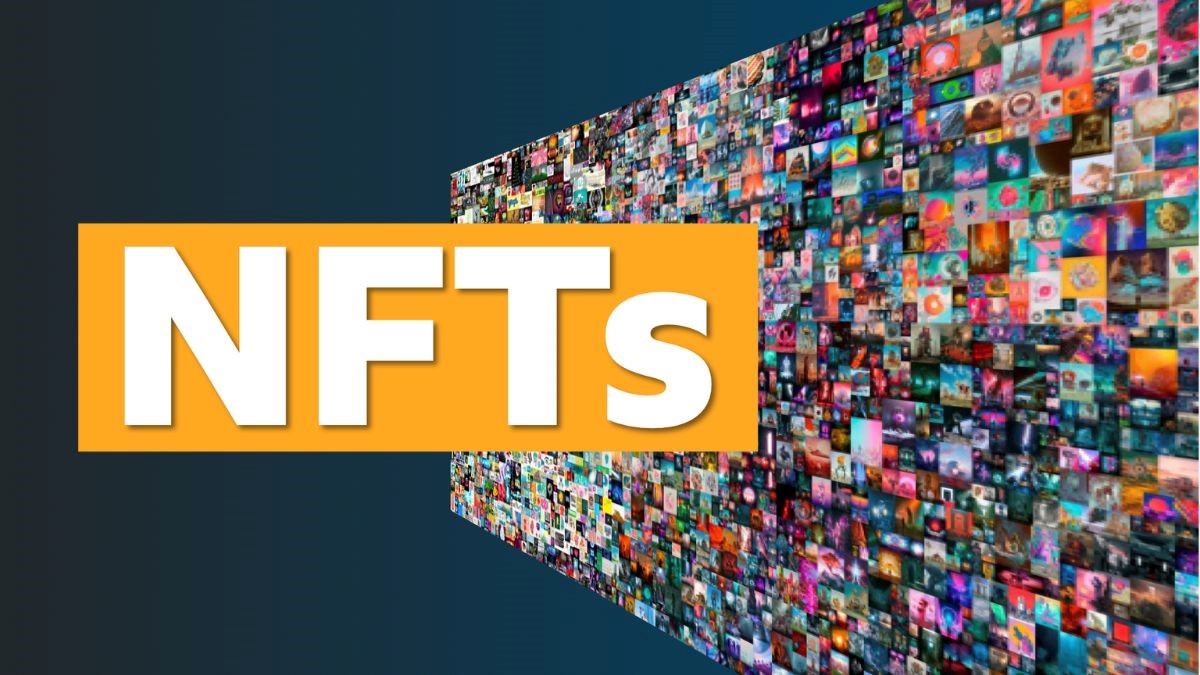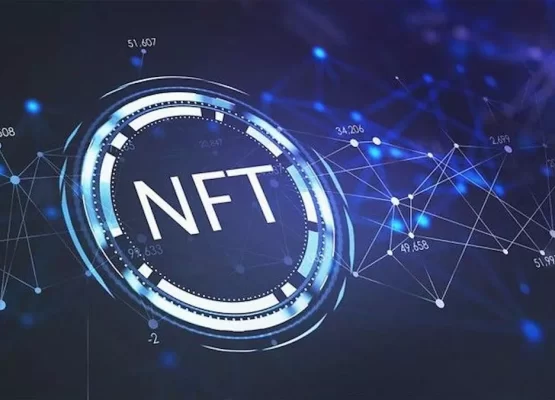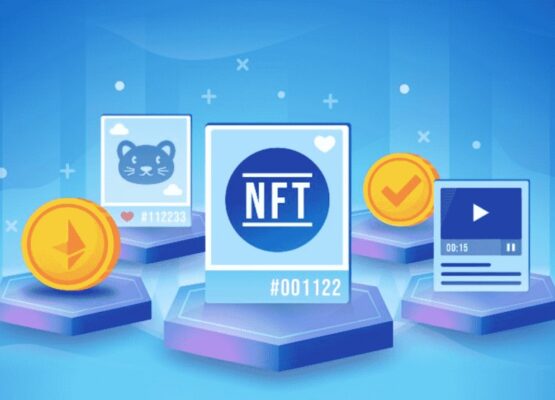The rise of non-fungible tokens (NFTs) has revolutionized the way businesses can conduct transactions and monetize their services. NFTs are digital assets that can be bought, sold, or traded on blockchain technology, making them both secure and immutable. As such, NFTs have tremendous potential for businesses to increase their revenue streams, create new opportunities within the industry, and provide a safe and reliable payment system.
The emergence of Non-Fungible Tokens (NFTs) has been a huge game changer for businesses, offering new and innovative ways to engage with customers. NFTs offer a wide range of creative digital assets to be tokenized, including art, music, videos, and gaming collectibles. With the right knowledge and understanding of the technology, businesses can unlock the full potential of NFTs to create new revenue streams and strengthen customer relationships.
The world of Non-Fungible Tokens (NFTs) is rapidly growing, and businesses can now leverage their unique properties to further their goals. NFTs are digital assets that exist on a distributed ledger and are backed by cryptography, making them highly secure, immutable and verifiable. This article will explore the potential of NFTs for businesses, from enhanced customer engagement to improved marketing capabilities.
What are NFTs?
Non-fungible tokens (NFTs) are digital assets that are gaining popularity in the world of digital art, games, and even sports. They’ve become a hot topic in both the cryptocurrency and creative industries. But what exactly are NFTs? In this article, we’ll explore what they are and how they work to give you a better understanding of this new form of asset ownership. We’ll explain why they’re valuable, their potential applications, and the risks associated with them.

Non-fungible tokens, or NFTs, have been all the rage recently in the digital world. NFTs are a type of cryptographic asset, allowing their owners to easily establish proof of ownership over works such as music, art, and video. They are unique and irreplaceable digital assets stored on blockchain technology that can be used to verify authenticity and ownership of digital possessions. As the world moves increasingly towards digitalization and uses cryptocurrency more frequently, it is important to understand what non-fungible tokens are and how they work.
Benefits of NFTs for Businesses
Non-fungible tokens (NFTs) have revolutionized the digital asset landscape, introducing new levels of ownership, trading and monetization in areas such as gaming, art, music and sports. For businesses looking to capitalize on this emerging technology trend, NFTs provide an array of benefits that can help them maximize their returns. From providing greater control of digital assets to enabling secure transactions and creating unique promotional opportunities, the advantages of using NFTs are becoming increasingly apparent for businesses around the world.
Non-fungible tokens (NFTs) are the latest craze in the digital world and their potential for helping businesses has been gaining attention. NFTs use blockchain technology to create a secure, immutable asset that can be used for many different purposes. They provide numerous benefits to businesses, from increasing customer loyalty to reducing costs. This article will explore the various ways businesses can benefit from using NFTs, from creating unique digital experiences for customers to leveraging tokenized assets as investments.
With the rise of NFT Token development (NFTs), businesses have more opportunities to reach their target markets. NFTs provide a secure and immutable way to store data, making them attractive for organizations looking for ways to add value to their product offerings. They can also be used as a digital asset or currency, allowing companies to leverage their investments in new and innovative ways.
The rise of blockchain technology has created a new asset class for businesses to explore – Non-Fungible Tokens (NFTs). NFTs are quickly becoming an important asset in the digital world, offering businesses many benefits. From increased liquidity to reducing operational costs and enhancing customer engagement, NFTs have far-reaching implications for business operations. In this article, we’ll explore the various ways in which businesses can benefit from using NFTs.
Challenges of Integrating NFTs
Non-fungible tokens (NFTs) are a new form of digital asset that are transforming the world of art, gaming, and finance. NFTs can represent any type of asset and have an array of potential applications. Despite these advantages, integrating NFTs into existing systems poses a number of challenges. This article will explore the difficulties involved in integrating NFTs into existing frameworks and the solutions available to overcome them. By understanding the challenges that come with using NFT technology, businesses can prepare themselves for successful adoption and implementation.
Non-fungible tokens (NFTs) have recently gained widespread attention in the crypto space due to their unique ability to create digital scarcity. While NFTs may provide immense potential for digital asset ownership, integration of this technology into existing systems presents a number of challenges. This article will explore some of the most significant issues that businesses must face when evaluating the use of NFTs. It will also discuss how organizations can address these problems and make sure they get the most out of their NFT initiatives.
The world of blockchain technology and cryptocurrency is constantly evolving and presenting new opportunities for businesses, investors, and individuals alike. One of the most exciting developments in this space has been the emergence of Non-Fungible Tokens (NFTs). As nft marketplace platform development become an increasingly popular option for creating digital assets and exchanging value, there are certain challenges associated with integrating them into existing systems. This article will look at these challenges that must be addressed in order to ensure successful adoption and integration of NFTs into mainstream applications.
Non-fungible tokens (NFTs) have been gaining mainstream traction within the blockchain space, revolutionizing the way digital art and memorabilia are bought, sold and collected. They provide a unique opportunity for artists to monetize their work while incentivizing users to collect digital assets with true ownership. However, integrating NFTs into existing systems has presented challenges which must be addressed in order for broader adoption of this technology to be realized.
Creative Marketing with NFTs
Non-fungible tokens (NFTs) are revolutionizing the way businesses approach marketing and promotion. In recent years, NFTs have opened up new pathways for creative marketing strategies, allowing companies to reach a wider audience than ever before. From celebrity collaborations to interactive digital experiences, there is no limit to what can be done with NFTs. With the potential of unlocking an entirely new avenue of consumer engagement, marketers are hard at work trying to incorporate this emerging technology into their existing campaigns.
In recent years, the rise of blockchain technology has created a new platform for marketers to engage in innovative campaigns. The emergence of non-fungible tokens (NFTs) is revolutionizing the marketing industry and providing creative opportunities to reach new audiences. As NFTs become more popular, businesses are taking advantage of their unique features to develop dynamic strategies for their marketing goals.
NFTs (Non-Fungible Tokens) are rapidly gaining traction in the world of digital marketing. With their ability to provide a secure, verifiable, and non-duplicable asset, NFTs have become a powerful tool for brands to leverage within their marketing strategies. The potential of these tokens, combined with the innovation of today’s marketers, has given rise to an entirely new way of advertising and connecting with customers.
Strategies For Adopting NFTs
Non-fungible tokens (NFTs) are a type of cryptocurrency gaining traction in the digital world. The unique nature of NFTs makes them particularly attractive for digital asset holders, as each token is guaranteed to be one-of-a-kind and can be used to purchase exclusive items such as artwork, music or even virtual real estate.
One strategy for adopting NFTs is to focus on their flexibility. They allow digital asset owners to trade freely among multiple platforms and have the potential to become a universal digital currency accepted across all platforms. Additionally, they are much more secure than traditional cryptocurrencies because they are not stored in a central server or vulnerable to hacks like other forms of digital currency.
Another strategy when it comes to utilizing NFTs is understanding their marketability and leveraging them as an investment tool.
Non-fungible tokens (NFTs) are being viewed as the new driving force in the digital world, and it is increasingly important to know how to navigate this rapidly evolving ecosystem. Adopting NFTs is an attractive option for businesses looking to capitalize on the potential of these tokens, but understanding the best strategies for adoption can be tricky. In this article, we will discuss some of the key strategies that will help you adopt and benefit from NFTs in your business.
Adopting non-fungible tokens (NFTs) is becoming an increasingly popular digital asset strategy for both individual and institutional investors. NFTs are unique, digital assets that can represent anything from art, music and collectibles to digital real estate. With their increasing popularity comes the need for strategies on how to adopt this new technology into a portfolio.
Non-fungible tokens (NFTs) have become increasingly popular as a revolutionary way to purchase, sell, and trade digital assets. The innovative technology behind NFTs offers many exciting opportunities for individuals looking to invest in the digital world. This article will discuss strategies for adopting NFTs, including understanding the different types of tokens, researching the market and platforms, keeping up with industry trends, and developing a financial plan. It will equip readers with an overview of how to effectively adopt NFTs into their portfolios and investments.
Conclusion
In conclusion, Non-Fungible Tokens offer businesses a plethora of opportunities to innovate and differentiate themselves. They are versatile and can be used to create digital scarcity, provide ownership rights to customers, and track digital assets. As the technology evolves and matures, businesses should start implementing NFTs into their existing strategies to increase customer engagement and monetize digital content.
NFTs have the potential to revolutionize the way businesses are conducted. With its unique features, it offers an opportunity to securely and transparently manage digital assets while creating a new revenue stream for businesses. By harnessing the power of blockchain technology, NFTs can provide a secure and immutable transaction layer for businesses to transact with ease. It can also help boost brand visibility by allowing companies to create exclusive digital products that can be bought and sold in a safe, secure manner.



